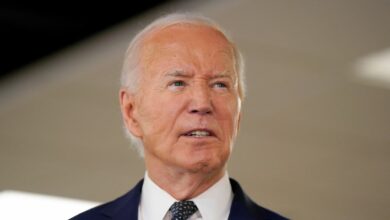
LONDON (Reuters) – British Foreign Minister Jeremy Hunt will set out on Thursday a “doctrine of deterrence”, including economic and diplomatic counter-measures, to prevent cyberattacks that threaten to turn elections into “tainted exercises”.
Britain will try to prosecute those responsible for cyber crimes, part of a growing response by the West against countries that hope to influence elections through disinformation and voter manipulation, he will say in a speech in Glasgow.
“We will always seek to discover which state or other actor was behind any malign cyber activity, overcoming any efforts to conceal their tracks,” Hunt will say, according to pre-released extracts of his speech.
Western countries issued coordinated denunciations of Russia in October for running what they described as a global hacking campaign. Russia has denied the allegations.
In the United States, a federal special counsel is investigating Russian interference in the 2016 presidential election and possible collusion with Donald Trump’s campaign. Moscow has denied any meddling and the US president has said there was no collusion.
Hunt will say there has been no evidence that foreign states have interfered with British votes but that unnamed hostile states are intent on using cyberspace to undermine Western democracies.
“Events have demonstrated how our adversaries regard free elections – and the very openness of a democratic system – as key vulnerabilities to be exploited… authoritarian regimes possess ways of undermining free societies that yesterday’s dictators would have envied,” he will say.
The British response could include the public naming and shaming of any perpetrator together with allies, exposing how the action was carried out and prosecuting those responsible to show they are not above the law.
Hunt will also say that Britain, as part of the European Union, agreed last year to impose sanctions to stiffen its response to cyberattacks and to rush through new curbs on online campaigning by political parties.
“After Brexit, the UK will be able to impose cyber-related sanctions on a national basis,” he will say.




